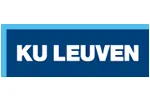We're moving! This site will be relocating to goingto.university in 2026. Please update your bookmarks to the new address.


| The award | How you will study | Study duration | Course start | Domestic course fees | International course fees |
|---|---|---|---|---|---|
| MSc | Full-time | 1 year | September | - | - |
Nuclear technology plays a crucial role in a wide variety of contexts and sectors in Belgium, including power production, waste management, nuclear fuel production, etc. The Belgian Nuclear Higher Education Network (BNEN) combines the expertise in nuclear education and research of six major Belgian universities (KU Leuven, UGent, VUB, UCL, ULG and ULB) with the Belgian Nuclear Research Centre SCK-CEN.
What is the programme all about?
Nuclear technology plays a crucial role in a wide variety of contexts and sectors in Belgium, including:
The Belgium Nuclear Higher Education Network (BNEN) combines the expertise in nuclear education and research of six major Belgian universities (KU Leuven, UGent, VUB, UCL, ULG and ULB) with the Belgian Nuclear Research Centre.
The Master of Science in Nuclear Engineering programme is an internationally oriented, interuniversity programme organised by BNEN in close collaboration with nuclear research centres and industry. The aim of the BNEN programme is to provide students with all the skills and scientific and technical background necessary to carry out duties at a high level of responsibility in order to ensure the safe and economical operation of nuclear power plants, the regulation and control of nuclear installations or to design new nuclear systems.
Structure
The current programme can be divided into three core blocks:
Thanks to the collaboration with SCK*CEN makes the actual use of facilities can be included in the curriculum, supporting the development of skills and competences in a research environment. All subjects are taught by academics appointed by the partner universities, whereas the exercises and laboratory sessions are supervised by the experts of SCK*CEN. The Master’s thesis offers an opportunity for internship in industry or in a research laboratory.
All teaching activities take place on the premises of SCK*CEN. Courses are organised in English and in a modular way; teaching in blocks of one to three weeks for each module allows optimal time management for students and lecturers, facilitates registration for individual modules, and allows easy exchange with international students.
One particular aspect of the BNEN degree is that it automatically leads to the recognition as Class I Expert by the Federal Agency of Nuclear Control. In order to receive this accreditation the programme must at least offer 24 credits in Nuclear Safety and 12 credits in Radioprotection.
Strengths
A major strength of the BNEN programme, as to its sustainability, is that it allows providing high quality academic education by experts from (or appointed by) the main Belgian universities at low individual cost and thus very efficiently harmonised/rationalised. In addition, the participation of the nuclear research centre SCK*CEN in the consortium provides superb realistic experimental facilities in a difficult (radioactive) environment.
A further fundamental strength of the programme can be found in the fact that a well-balanced curriculum is offered where the contents and format have been discussed at length with representatives of the major nuclear companies that are the graduates’ first potential employers. There is a nearly complete overlap between objectives and realised competences in courses, electives, exercises and Master’s thesis. This can be ascribed to the following contributing factors:
Below are some suggested courses at other providers that you may also be interested in:
Advanced Bachelor of Bioinformatics Advanced Diploma, Bachelor Degree
Howest University of Applied Sciences
Find out moreResearch in Special Needs Education Master Degree
Faculty of Educational Sciences, University of Oslo
Find out moreIf you do not meet the entry requirements for this course then consider one of these postgraduate preparation courses from another institution:
Graduate Diploma of Engineering (Industrial Automation)
Engineering Institute of Technology
Find out moreGraduate Diploma in Occupational Health and Safety
Queensland University of Technology (QUT)
Find out moreThere are 123 other courses listed from KU Leuven. A selection of these are displayed below:
Join the StudyLink email list and never miss a chance to turn your study abroad dreams into reality!
